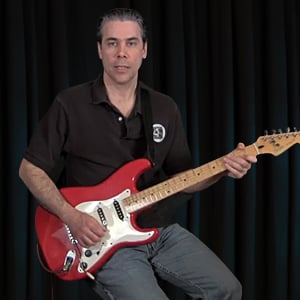-
-
-
-
- Scale And Chord Relationships: Lesson 1
- Scale And Chord Relationships: Lesson 2
- Scale And Chord Relationships: Lesson 3
- Scale And Chord Relationships: Lesson 4
- Scale And Chord Relationships: Lesson 5
- Scale And Chord Relationships: Lesson 6
- Scale And Chord Relationships: Lesson 7
- Scale And Chord Relationships: Lesson 8
- Scale And Chord Relationships: Lesson 9
-
- Intro to Triads & Inversions: Lesson 1
- Intro to Triads & Inversions: Lesson 2
- Intro to Triads & Inversions: Lesson 3
- Intro to Triads & Inversions: Lesson 4
- Intro to Triads & Inversions: Lesson 5
- Intro to Triads & Inversions: Lesson 6
- Intro to Triads & Inversions: Lesson 7
- Intro to Triads & Inversions: Lesson 8
- Intro to Triads & Inversions: Lesson 9
- Intro to Triads & Inversions: Lesson 10
- Intro to Triads & Inversions: Lesson 11
-
-
-
- Learning to Read Music 1: Lesson 1
- Learning to Read Music 1: Lesson 2
- Learning to Read Music 1: Lesson 3
- Learning to Read Music 1: Lesson 4
- Learning to Read Music 1: Lesson 5
- Learning to Read Music 1: Lesson 6
- Learning to Read Music 1: Lesson 7
- Learning to Read Music 1: Lesson 8
- Learning to Read Music 1: Lesson 9
- Learning to Read Music 1: Lesson 10
-
-
-
- More 12 Bar Blues in A: Lesson 1
- More 12 Bar Blues in A: Lesson 2
- More 12 Bar Blues in A: Lesson 3
- More 12 Bar Blues in A: Lesson 4
- More 12 Bar Blues in A: Lesson 5
- More 12 Bar Blues in A: Lesson 6
- More 12 Bar Blues in A: Lesson 7
- More 12 Bar Blues in A: Lesson 8
- More 12 Bar Blues in A: Lesson 9
- More 12 Bar Blues in A: Lesson 10
-
-
-
- Introduction
- The Guitar Tricks Metronome
- Using the Guitar Tricks Metronome
- C Major Straight Up and Down
- C Major In 3's Up and Down
- C Major In 4's Up and Down
- C Major In Pedal Point Up and Down
- C Minor Straight Up and Down
- C Minor In 3's Up and Down
- C Minor In 4's Up and Down
- C Minor In Pedal Point Up and Down
- Practicing Scales Summary
-
-
-
- The Mechanics
- Shifting Positions in Time
- Prepare for E Major Shaped Barre Chords
- Play with E Major Shaped Barre Chords
- Play with E Minor Shaped Barre Chords
- Play with A Major Shaped Barre Chords
- Play with A Minor Shaped Barre Chords
- Switching Between Shapes and Positions
- Switch Between E & A Shaped Barre Chords
- Playing in A, D, and E Major
- Playing in A, D, and E Minor
- Play with All Four Barre Chord Shapes
- Play with All Four Barre Chord Shapes 2
- Advice and Encouragement
C Major Scale for Beginners: Lesson 1
What is the C major scale?
A scale is a very specific pattern of notes that is used to create the
basic building blocks of music: melody and harmony. In order to build a scale from the intervals of the octave we need a formula. The major scale formula is derived from the nature of the overtone series and is:
1st note, whole step, 2nd note, whole step, 3rd note, half step, 4th note,
whole step, 5th note, whole step, 6th note, whole step, 7th note, half step,
8th note (which is one octave higher than the first note).
This formula produces the very familiar sound we associate with the solfege syllables: Do, Re, Mi, Fa, Sol, La, Ti, Do. Let's use this idea to play a C major scale. We start with the note C on the A string, 3rd fret. Therefore the note C is the 1st note of the scale (the "1st scale degree"). We move up a whole step (or two half steps) to the 5th fret and this will be the 2nd note of the C major scale (the "2nd scale degree"). This note happens to be a D. Follow the scale formula and we wind up with this pattern of notes:
C - whole step - D - whole step - E - half step - F - whole step - G - whole step - A - whole step - B - half step - C
On a guitar this can be played as such (see image below):

- Styles:
- Any Style
- Difficulty:
-